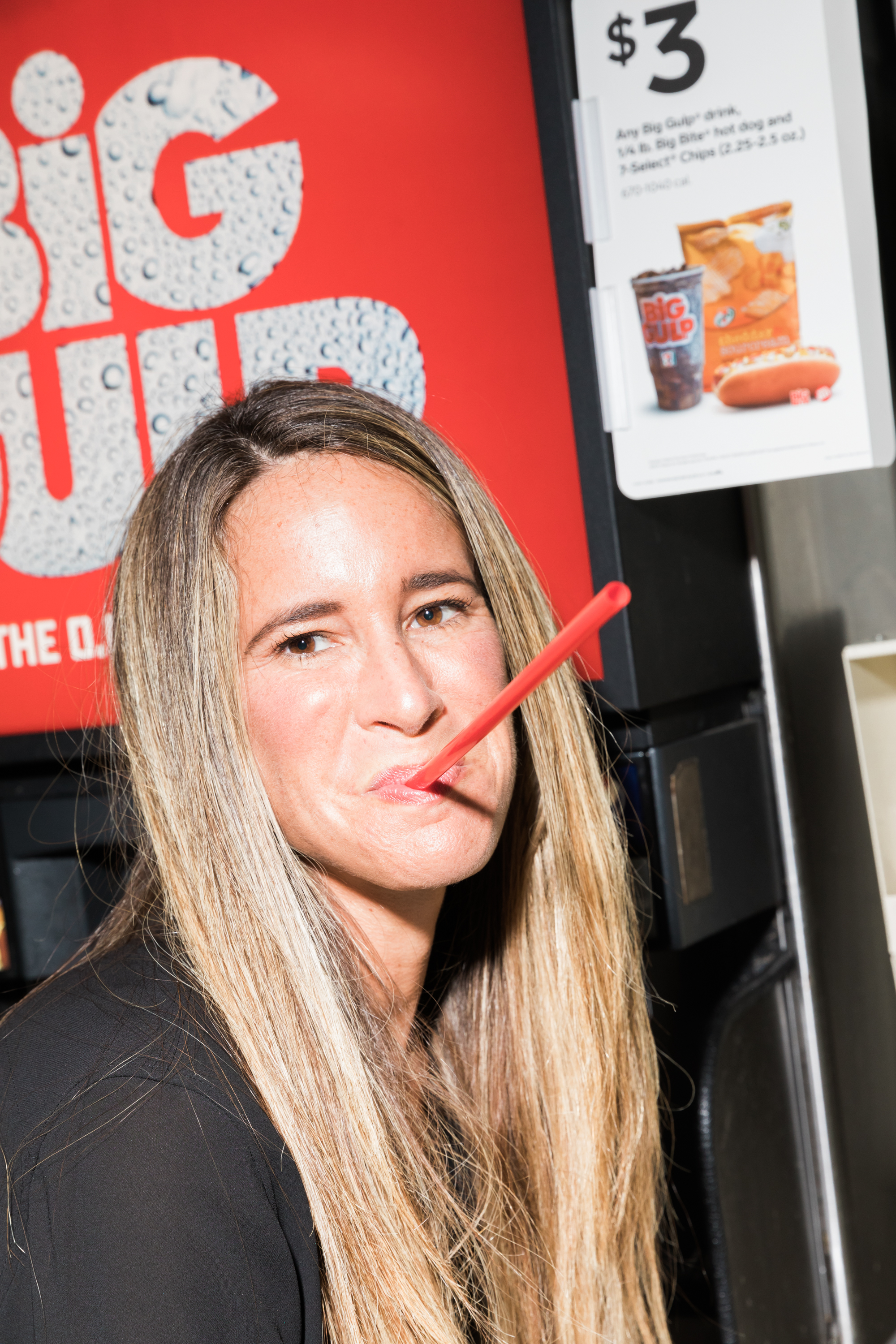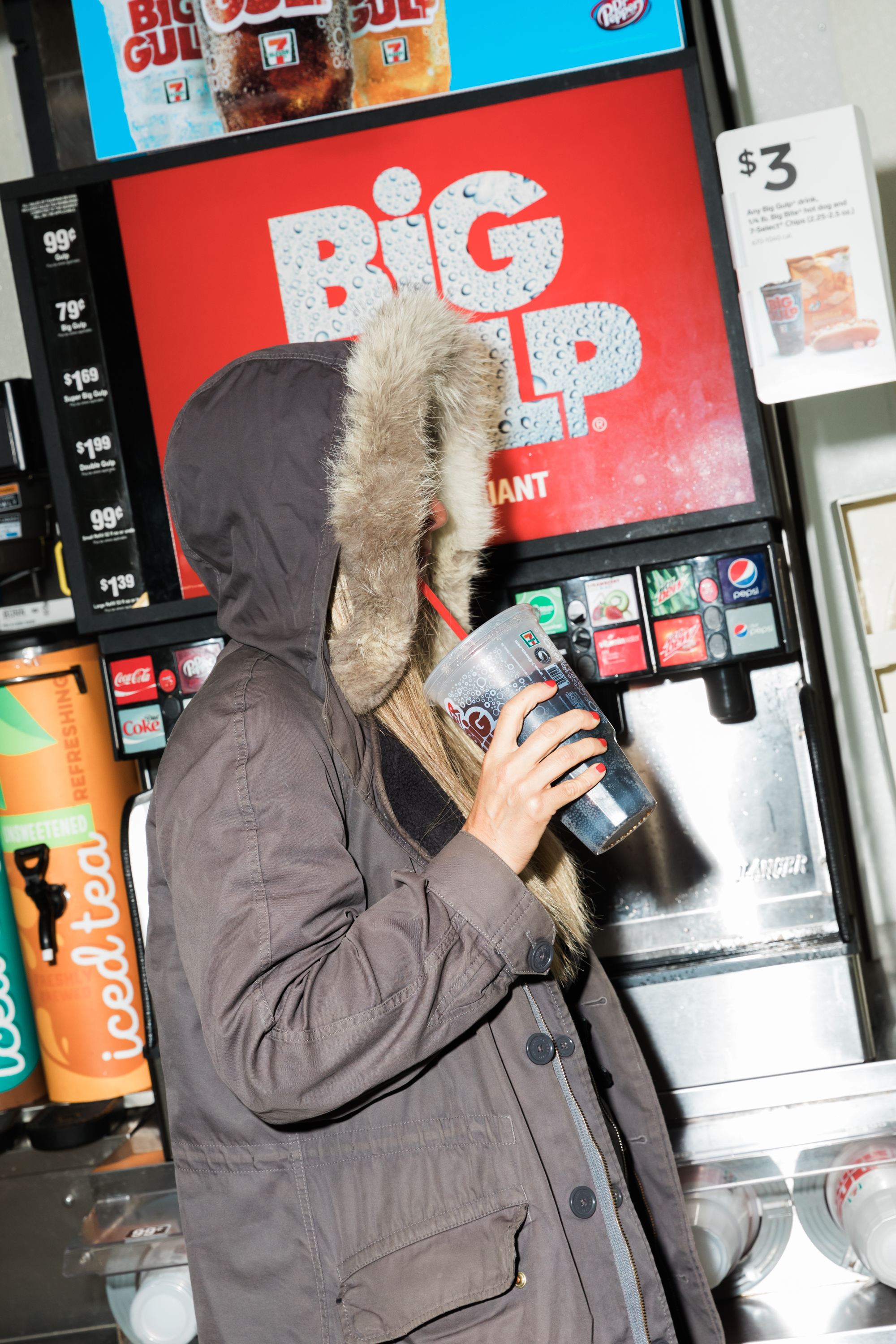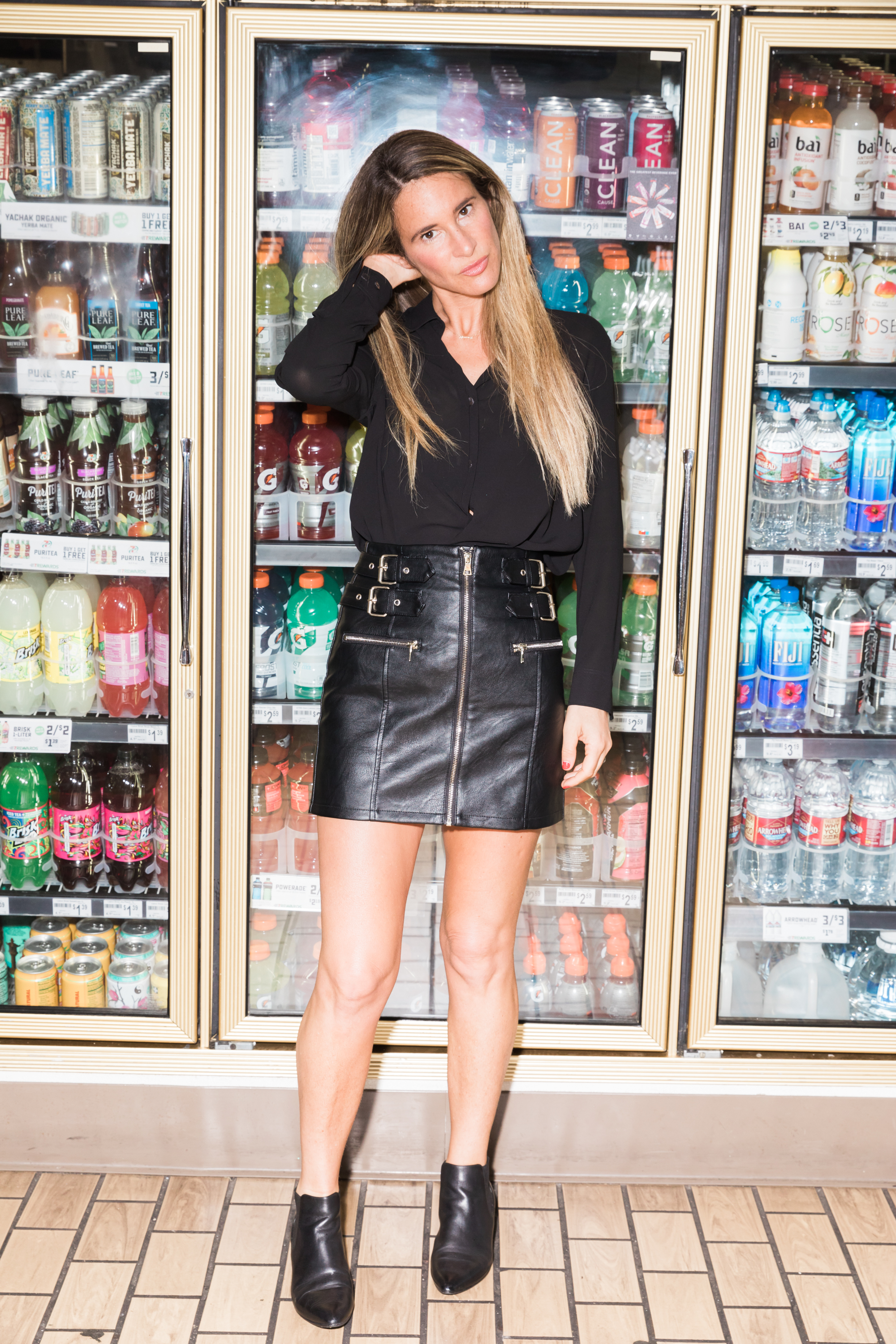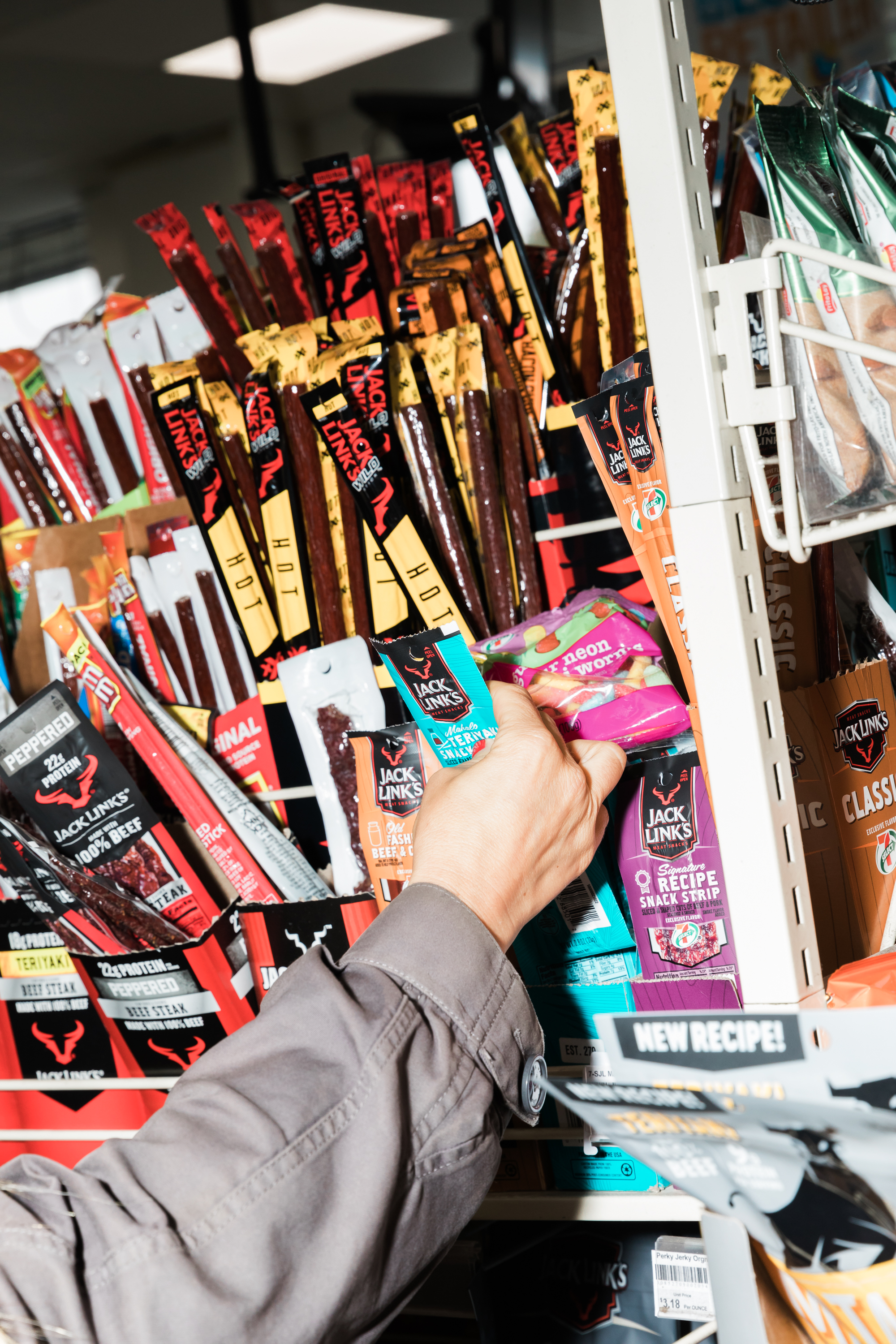Melissa Broder of So Sad Today
“For Melissa Broder, writing doesn’t just come naturally. It’s a force that demands expression, much like the give-no-fucks ethos that seems to drive all her projects.”
Many of us came to know Melissa Broder through her Twitter handle, so sad today. Her online musings have often gone viral, for reasons that are obvious if you follow her (the latest tweet as of this writing says “brb, regretting major life decisions”). Her sharply funny and devastatingly relatable quips ultimately paved the way to a book of essays, also called So Sad Today and recommended to us by Passersby Lauren Nostro and Angie Venezia.
Whether it’s in that book, on Twitter, or in any of Broder’s other published works (which also include poetry collections and, most recently, a novel), her irreverence and authenticity commands a kind of respect and awe. She makes it seem like doing and getting whatever you want is easy; and yet, her hard work and passion are evident not just in her accomplishments but also in her attitude: she lets nothing stop her. Though we tried to find the secret to how she got to where she is today—from taking night classes towards an MFA in poetry, to publishing a book off the back of social media stardom—it’s clear the driver of her success is no secret at all. It’s just her.
Let’s start with your book of personal essays, So Sad Today. I think people love it because it’s so unapologetically honest. You talk about depression and anxiety, your addictions and all of your deepest fears, and in such an incisive way. What was the experience like for you in writing these works? Is it difficult to mine that kind of subject matter, or is it more relieving/therapeutic?
I dictate the first drafts of all of my prose and I don't consider editing anything (or the fact that anyone will be reading the thing) until drafts #2, 3, 4, 5, 6, 7, 8... So the first draft is a very generative, rhythmic thing. I'm just driving around in my car or walking, talking to myself using Siri and a notes app. It makes it much easier to tell the truth that way.
Your latest work, The Pisces, is your first professional foray into novel and fiction writing. Were there any challenges for you in terms of changing your mental mode as you approached the writing?
I never thought I would write a novel. I never even thought I would write prose. When I lived in New York I wrote poetry on the subway, but when I moved to LA, I started dictating in my car. The line breaks disappeared and the language became more conversational.
After I finished writing So Sad Today, I still felt compelled to explore the intersection between love and infatuation, and love as a drug. I was on the beach in Venice reading a beautiful book called The Professor and The Siren by Giuseppe Tomasi di Lampedusa about a man who had a love affair with a mermaid, and I realized that nothing embodies these intersections like the relationship between human and mermaid. I started thinking about how many men in literature have walked into the ocean and drowned out of infatuation—and the story just kind of came to me. It helps that Venice Beach could be Lesbos or Crete.
I was like, But I can't write a novel. Then I was like, Why can't I? So I decided to just experiment and dictate three paragraphs a day and see what happened. Nine months later I had dictated the whole first draft.
The biggest challenge for me in writing fiction is the layers of action. I'm like, wait, something has to happen. Wait, now another thing has to happen? And another? I'm very internally-focused so it feels like a lot of events.
Rewinding to the beginning of your career: How did you establish yourself as a professional writer, i.e. getting your first collection of poems published? Did/do you have an agent, and if so, how did you find and choose that person?
My first three collections of poems were published by independent presses, and when I say independent presses, I mean one man in Tampa and one man in Baltimore. I definitely did not have an agent. When I chose my agent, I already had a deal on the table to write my book of essays. Usually it's the other way around—you get an agent and then a book deal. But an editor had read my essays and wanted me to do a book. I knew I needed to get an agent before I signed the contract. As a poet I was like "Now is my big chance to rope one in!" I asked an editor friend of mine if he knew anyone who might also be amenable to poetry, and he recommended me Meredith Kaffel Simonoff. She's wonderful. She even sold my fourth poetry collection, Last Sext, which was very nice of her to do, because agents make, like, five cents off of poetry collections. She also sold The Pisces.
Let’s talk about the book deal. When you got that offer, how did you judge whether it was "right" for you? I imagine you sought an agent to help you negotiate the terms?
I said yes to the offer before I had an agent negotiate it. I knew nothing. In my experience as a poet it was just exciting to be getting an advance for something. Now I know to let her negotiate for me.
You’ve been able to leverage your popular Twitter handle for gigs like your Vice column. Would you say a social media brand is a must-have for writers today who have any hope of getting published?
I don't think anything is a must-anything.
ok, Let me re-approach this question: as far as how you see it, how has social media helped your career?
Exposure. Disseminating little tiny pieces of myself into the world that give people a tiny taste of the greater whole of my work.
Has it been more useful than, say, your MFA, or any writing-related degree in general?
Fuck an MFA. But also, if you like school, an MFA could be right for you.
How do you brand and pitch yourself as a product without just becoming a total douchebag?
I don't "brand" myself or "pitch myself as a product." That is the grossest thing I could think of doing. I say: the messier the better. But in terms of not being a douchebag, I try not to do things I find douchey in others...like use the word "brand."
As both a twitter personality and a writer, you’re on the receiving end of both real-time “feedback” and professional criticism. How does reading ‘online takes’ of your work affect your output?
It doesn’t affect my output, because I have to keep writing. It’s simply what I do. But it can make me feel like a piece of shit for sure.
As a brutally honest writer, how do you get to that place? How do you know if you’re being truly honest with yourself?
There is a truth that is beyond fact and it's a bones truth. Sometimes metaphor is more real or true than what actually happened. Sometimes not. But I've learned, with time, to detect it. That detection happens in the editing process.
Tell us a bit more about that—What is it about the process that helps you detect your "bones truth"?
There is always back and forth [with the editor]. Just when you think you are out of the weeds, you are back in the fucking weeds. I want to make an airbrushed sign for my wall that says “In the Weeds.” But there is a bones knowing whether an editor is on target or whether their editorial suggestion isn’t a fit. Often I don’t know until after I’ve made the edit.
For writers, there’s always so much talk about finding one’s “voice.” Do you think you’ve found your “voice,” and what has that process been like for you over the course of your career?
I trust myself on the page now, yes (way more than I do off the page). What led to that? Time, writing, hundreds of hours of hard work, meditation.
You’ve said that your husband is your best reader. What does it mean to be a “good reader” of someone’s work? Any advice for how to find the right people or groups to bounce ideas off of?
A good reader doesn’t fuck with your voice. They don’t impose their tastes on your work, but they know when your words can be sharper, more precise, more you. They know when you’re bullshitting.
Where to find them? I don’t know. Maybe start by having sex with people who enjoy reading. If you’re having sex with someone they’ll probably pay more attention than the average shmo from creative writing workshop. But it shouldn’t be someone you’ve only had sex with a few times because they won’t be critical enough. Wait till you’ve been fucking at least six months, then lower the boom.
when you’re writing in the subway or dictating in your car, do you use Apple’s built in apps (Notes, Voice Recordings), or do you have any apps to recommend that support your creative process?
I use Siri and a free app called Simplenote.
What are some other creative habits or rituals you have?
I meditate twice daily. I chew nicorette. I read. I drink a lot of Coke Zero. I make playlists. I do a little writing or editing every day no matter what.
How did you know you wanted to be a writer in the first place?
I’ve been writing since I was eight. It’s all I know how to do.
Being such an active Twitter user, what are some of your favorite accounts/people to follow?
@tinynietzsche 4 lyfe!
What are some of your favorite places in LA? any favorites you miss in NYC?
In LA I like Wasteland on Melrose for designer consignment clothes, Candle Delirium for candles, Jinya for ramen, and the 7-11 parking lot for hanging out and eating alone in my car. The thing I miss most about New York is the subway. I know it’s fucked up right now but I still love it.
What are you reading now?
I just re-read Lolita by Vladimir Nabokov. Now I am reading Convenience Store Woman by Sayaka Murata.
Photography by Maggie Shannon & Words by Raquel Dalarossa







